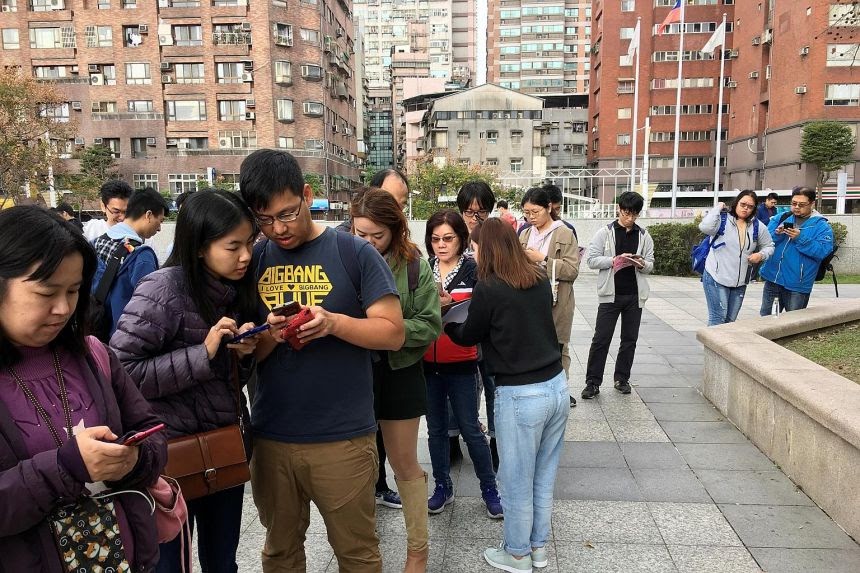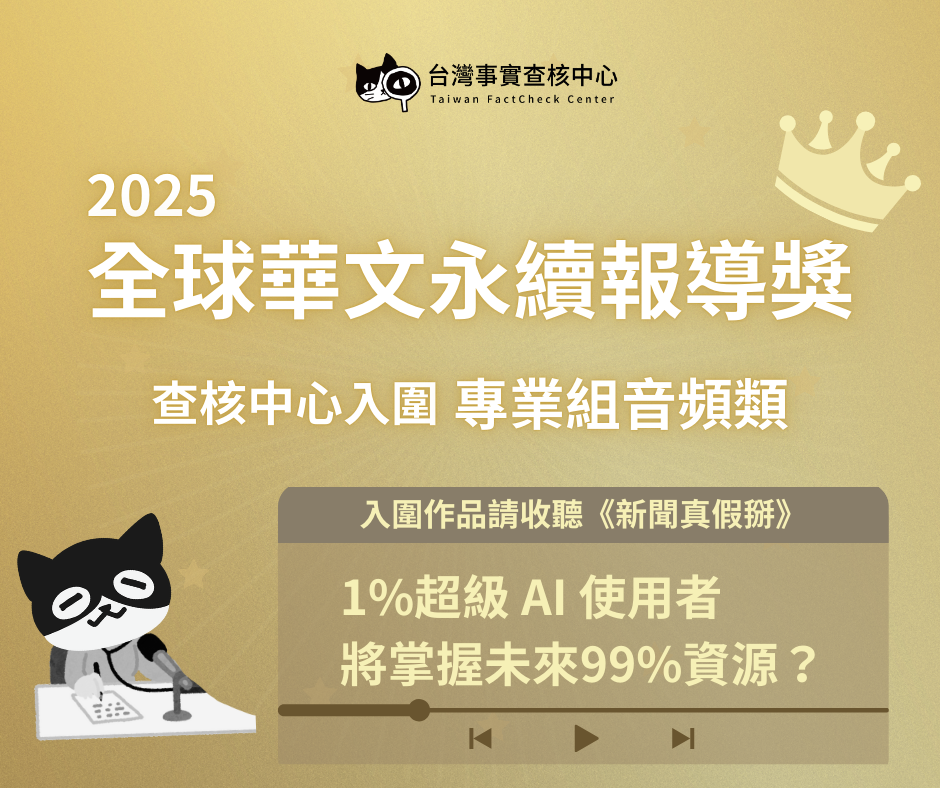【海峽時報】Concerted effort in Taiwan to fight fake news as polls loom
【海峽時報】Concerted effort in Taiwan to fight fake news as polls loom
【2020年1月5日 海峽時報 Asia/East Asia】
Taipei raises penalties for spread of misinformation as civil groups act to help voters fact-check political messages
 People at an event organised by Taiwanese NGO Fake News Cleaner on how to spot and report fake news, in New Taipei City last month. PHOTO: REUTERS
People at an event organised by Taiwanese NGO Fake News Cleaner on how to spot and report fake news, in New Taipei City last month. PHOTO: REUTERS

Taiwan Correspondent
PUBLISHEDJAN 5, 2020, 5:00 AM SGT
With a presidential election just a week away, Taiwan's government, the local media, researchers and hackers are stepping up efforts to quash a deluge of fake news - much of which is believed to be coming from China.
On New Year's Eve, Taiwan's legislature passed a number of amendments to the Criminal Code to regulate the spreading of misinformation, raising the penalty from about two years behind bars and a fine of NT$1,000 (S$45) to up to NT$200,000 in fines and the same prison time. The punishment is heavier if the misinformation is spread online or via television, radio or other media.
The problem of fake news is considered especially acute in the island. Along with Latvia, Taiwan was ranked as the place most affected by foreign online disinformation campaigns in the world in 2019 by the V-Dem Institute, a data analysis centre hosted at the University of Gothenburg, Sweden's Department of Political Science.
These two places have "the absolute worst scores" when it comes to false information spread by foreign governments, reads V-Dem's 2019 Annual Democracy Report.
In Taiwan's case, the main originator is China, which the report says is aiming to interfere in the island's domestic politics by "circulating misleading information on social media and investing in Taiwanese media outlets".
A study published by local non-profit media Voicettank last September observed that during local elections in 2018, held on the same day as a controversial multi-question referendum, fake political news sent on popular messaging platform Line grew steadily in the two months before election day on Nov 24 that year, and peaked on the day itself.
The data was collected from the number of fake news cases reported by Line users to the fact-checking Line account Cofacts.
According to the study, the numbers dropped right when the elections ended.
Cofacts is one of the many ways Taiwanese people have taken the initiative in battling fake news.
Run by g0v, a non-profit online platform created by hackers to promote transparent government information, Cofacts is a Line bot that one can "message" - you send the bot some information you believe might be fake, and the bot will help verify its credibility.
In addition to Taiwan FactCheck Centre and Cofacts, a group of Taichung locals created Fakenews Cleaner, a non-profit organisation that holds talks teaching people how to differentiate between real and fake news.
It also reaches out to older smartphone users who might not have access to fact-checking resources.
Ms Valerie Wang, 29, expressed exasperation at Line messages from her father that she says often contain fake political news, usually forwarded by his friends.
"When I try to get him to fact-check these messages, he just replied, 'takes only one second to forward but 10 minutes to verify' - I can't believe he said that."
Mr Lee, a 30-year-old Taiwanese man who asked to be identified by his surname only, said: "My family group chat is like that, too."
Like Ms Wang's father, Mr Lee's elders usually send negative messages about President Tsai Ing-wen or her pro-independence Democratic Progressive Party to the chat group.
"But relatives my age mostly choose not to respond (to such messages). Our elders will think information that contradicts their political beliefs is the actual fake news and will stop the conversation."
However, the focus is not just on fake news believed to be from China - local politicians are also being scrutinised.
In a recent presidential debate, online news site READr, The News Lens, Taiwan Environmental Information Association and others collaborated on a joint fact-checking project that verified every statement made by the candidates, grading them as "entirely correct", "partially correct" or "false", and followed up with supporting evidence. Several local news outlets also conducted their own fact-checking in real time.
Still a work in progress, READr's current results show Ms Tsai in the lead with 92 per cent of her claims factually correct, with the opposition Kuomintang candidate Han Kuo-yu at 40 per cent, and People First Party chairman James Soong at 25 per cent.
Mr Lee thinks the spreading of fake news is something that the supporters of both camps are guilty of.
"I think that once those in the older generation have a fixed political leaning, it's difficult for them to change. They will only accept information or news that is beneficial to the camp they support, but it's not their priority to verify if the information was factual."
報導網址



